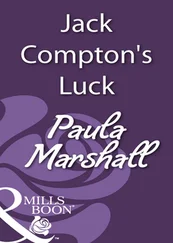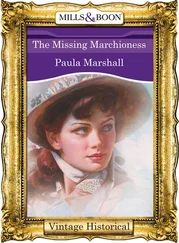He walked the length of the shop, gave her a half-bow, and said, ‘Good morning, Miss Langley, have you come to see the silks—or the cottons?’
Sarah was aware that every woman’s eye was on her, and that Tom was equally aware of it. She was not to know that these days Tom rarely served in the shop himself, leaving that to the young man and a middle-aged woman who was busy looking after one of the matrons.
He walked her over to a small trestle table on which bales of fabric lay and began to display them to her. There were not only rolls of silk, but of muslin, calico, cotton and the finest lawn. He spoke briefly, but knowledgeably, of them all, even recommending certain threads and trimmings as suitable. He was the complete man milliner, she thought with amusement, as far removed as possible from the dangerous brute that Pat Ramsey and the other officers had reported him to be.
She noticed that his hands, like Alan Kerr’s, were beautifully cared for, the nails smoothly cut. This was surprising; even more so was his apparent ability to read her mind, for he said to her, apparently idly, ‘Must keep the hands trim, Miss Langley, might damage the goods, else.’
She began to question him further about the silks and he fetched even more bales from the back to show her, together with ribbons, laces and other frippery, which she might wish to choose from. After running out of questions concerning haberdashery, she said, ‘I understand that you have many other interests besides this store, Mr Dilhorne.’
Her comment was really a question and he took it as such.
‘Indeed, Miss Langley. I run a money-lending business, have connections with stone quarrying and the brick-fields, and own several ships. I occasionally do a little auctioneering and am at the present moment engaged in talks with the Yankee sealers about joining in business with them.’
‘You must be a very busy man. I was surprised to see that both you and Dr Kerr had time to visit Hyde Park yesterday.’
‘Oh, there’s more to life, Miss Langley, than work—as Dr Kerr and I both know.’
How odd it was that she should be enjoying her conversation with a man whom most of Sydney’s Exclusives dismissed as a coarse brute. Would Dr Kerr be as interesting to talk to? she wondered. Perhaps even more so, although most people in Sydney would doubtless tell her that she should not be thinking of, or talking to, either of them.
As though he had been reading her mind again, Tom picked up one of the bales of silk and murmured softly, aware that their lengthy tête-à-tête was drawing curious stares, if not to say glares. ‘If I may advise you, Miss Langley, it may not be altogether wise to speak overlong with me, or my friend the Doctor. Every tabby-cat in Sydney will be at your throat if you do.’
‘Why, Mr Dilhorne,’ she said, with a smile as dangerous as his own, ‘I know of no one who has the right to instruct me on whom to speak with and how long I may speak to them. I choose my partners in conversation, and my friends, for myself.’
It was not quite simple defiance that she was expressing. She found that she liked talking to him. He spoke to her as though she were another man, with no airs either of approval or of condescension. His obliquity pleased her, too, for he half-bowed to her again and continued their conversation as though he had not spoken and she had not answered.
Alan Kerr was wrong about her, Tom thought. She was not your usual fine lady and it was a pleasure to speak with her about his many interests since she had a good mind and was not afraid to use it. His intuition told him that there was something wrong with her, though, that in some strange fashion her world was awry. It was as if she were accompanied by a shadow. A shadow that prevented her from being as easy as she must have once been, a shadow that set her sparking at his friend every time she met him.
‘There is one question which I should like to ask you, Mr Dilhorne, if you would not find it offensive.’
‘Oh, I rarely take offence at anything, Miss Langley. Mostly it’s a pure waste of time. But should I do so, then the offender is sure to be told of it in no uncertain terms.’
His bright blue eyes twinkled at her, but she could suddenly see in him the danger of which she had been warned. Nevertheless she ploughed on.
‘Why is it that Governor Macquarie appears to favour the Emancipists when all the respectable folk in the colony think that he is wrong to do so?’
‘That is an easy question, Miss Langley. It is because he believes that the future lies with the people who stay here, like Dr Kerr and myself, and not with those who come and go, many of whom are idle.’
‘Like myself,’ she commented wryly. ‘And I am keeping you from your work, I fear.’
He made her no smooth, complimentary answer, merely said, ‘Yes, I am a busy man and time is money, you know. There is another thing that I ought to say—and with no offence taken on your part, I hope.’
‘I will answer you with your own words—if you remember them,’ she laughed at him, her face soft, quite unlike the virago who had repeatedly berated Alan Kerr.
‘Indeed, I do. It is this. There are some of us who have suffered grievously, who lost everything when they were brought here against their will—unlike me, for I had nothing to lose—and who now have an opportunity to gain everything. Do not judge too harshly those who see you as a bright reminder of everything that they have lost and who resent you accordingly. Not all of them will be Emancipists, for there will also be those free men and women who will dislike you for possessing the beauty and intellect that they lack. Be patient with them, Miss Langley, if I may so advise you, for you are one of the fortunate in this world—and there are many in New South Wales who are not.’
Emancipist though he was, Sarah could not take offence at his frankness, since what he had said to her struck home. For the first time she began to grasp that her suffering at the hands of Charles Villiers was as nothing to that which many of those around her, including some in the charmed ranks of the Exclusives, were enduring.
‘I will try to remember what you have said,’ she offered him at last. She thought that he was obviously talking of Alan Kerr, and for the first time she wondered what it was that the doctor had lost—and why.
‘I’ve been impertinent, I know,’ Tom told her with his cheerful smile, ‘to speak to you after this fashion, but remember this, I shall always be only too happy to be of service to you, Miss Langley.’
‘Miss Sarah to you, Mr Dilhorne.’
‘Miss Sarah,’ he repeated, before calling over the young man to pick up the silks and trimmings that she had chosen. He made his farewell, not with a bow, but with a hand tipped to his head as though still he wore the battered felt hat in which she had first seen him.
She had made a friend, a strange friend, a man who would never be her lover, but who would treat her as fairly as though no difference of sex existed between them. And if some odd things had begun to happen to Sarah in New South Wales, this was, perhaps, the oddest of them all.
John was predictably annoyed when gossip finally reached him of Sarah’s long conversation with the Emancipist to whom he had forbidden her to speak.
‘Really, Sarah,’ he said, anger plain in his voice, ‘he cannot but think that you are encouraging him. It is neither wise nor sensible of you to consort with such as Dilhorne. Who knows how he may behave towards you if he thinks you…light?’
‘What I do know,’ she flung back at him, ‘is that he warned me himself against talking to him, and his manner to me when we did converse was more proper than that of many gentlemen or military officers whom I have met here, or back in England.’
Читать дальше












